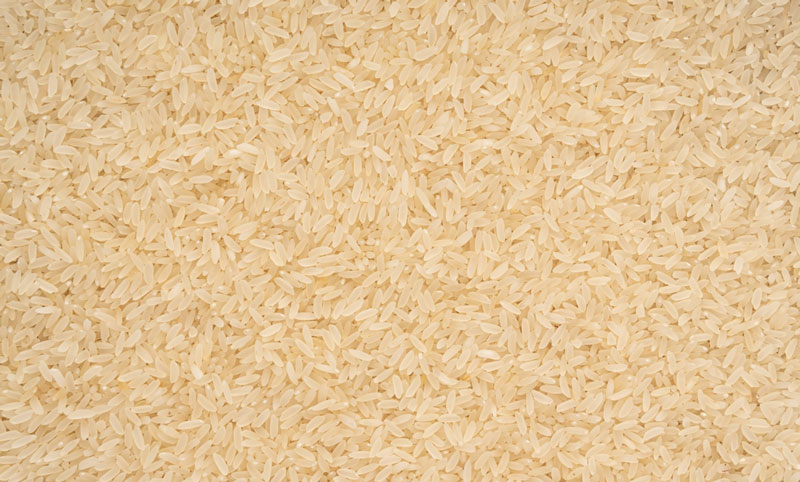Chickens are curious creatures and love exploring their surroundings, especially when it comes to food. If you have chickens, you might wonder, “Can chickens eat uncooked rice?” This is a common question among chicken owners. The short answer is YES! Chickens can eat uncooked rice, but there are important things to consider before making it a regular part of their diet.
As we explore this topic, we will discover how to safely include uncooked rice in our chickens’ meals, the benefits it can offer, and the precautions we should take. It’s essential to provide our feathered friends with a balanced diet, so let’s learn more about feeding them rice!
Stay with us as we uncover everything you need to know about feeding uncooked rice to your chickens. We will discuss the amount, the best way to serve it, the benefits, and any risks involved. Let’s get started!
Can Chickens Eat Uncooked Rice?

Yes, chickens can eat uncooked rice! Many chicken owners find that their flocks enjoy this type of grain. Uncooked rice can serve as a treat, and chickens often love it. Rice can also be a calorie-dense food for them, which is essential during colder months when their energy needs increase. However, we should be aware that not all grains are created equally, and moderation is key.
There are two types of rice that most people use: white rice and brown rice. Both types are safe for chickens to eat. Each variety has different nutritional values, with brown rice being more nutritious due to its higher fiber content. While uncooked rice has its benefits, we need to make sure it does not make up the majority of their diet. Instead, it should be an occasional treat alongside their everyday feed.
How Much Uncooked Rice Can Chickens Eat?
When it comes to feeding uncooked rice to our chickens, moderation is vital. Too much rice can lead to an imbalance in their diet. The general rule is to offer rice as a treat, making up about 10% of their total diet. If we are going to introduce rice, we should start with small amounts and see how our chickens react. A small handful of uncooked rice can be given to our flock once or twice a week. Observe how they respond and adjust accordingly.
Chickens process food differently than humans do, so it’s best to combine rice with other foods. Layering rice into their feed or ensuring they have access to a variety of grains, vegetables, and proteins will ensure they get a well-rounded diet. Keep an eye on their overall health to make sure they are digesting the rice properly.
Another point to consider is the size of our flock. If we have a larger group of chickens, we may need to adjust the portion size accordingly. We want to provide enough rice for all our chickens to enjoy without giving too much. By offering rice sparingly, we can make feeding time a fun event while keeping their health in check.
Best Way to Feed Uncooked Rice to Chickens
There are several ways to present uncooked rice to our chickens, and each method has its own benefits. One option is to sprinkle the uncooked rice directly on the ground or in their feeding area. This allows chickens to scratch and peck at it, mimicking their natural behaviors. They will enjoy wandering around searching for the rice, which adds an element of excitement to their day.
Another way to feed rice is to mix it in with their regular feed. By combining rice with their existing chicken feed, we can create a balanced meal that still satisfies their need for variety. This method reduces the chances that the chickens will overdose on any single food item and provides a nutritious combination.
It’s advisable to soak uncooked rice for about 30 minutes to an hour before giving it to our chickens. Soaking can help soften the rice and make it easier for them to ingest. Additionally, soaked rice releases a small amount of starch, which chickens might find appealing. It also provides some water content, which is an added benefit, especially during hot weather.
Benefits of Feeding Chickens Uncooked Rice
Hydration
One important benefit of feeding uncooked rice to our chickens is hydration. Rice contains a small amount of moisture, which helps prevent dehydration. On hot days or during summer months, giving our chickens rice can assist in keeping them cool and hydrated. Chickens that are well-hydrated are generally happier and healthier.
Fiber
Another advantage is the fiber content in rice. Brown rice particularly contains more fiber than white rice. Fiber contributes to good digestion and gut health among chickens. Proper digestion not only aids in waste elimination but also helps maintain their overall health. Including rice in their diet is a way to support their digestive system.
Vitamins and Minerals
Rice has several vitamins and minerals, making it a helpful addition to our chickens’ diet. B vitamins are prevalent in rice, which aid in energy metabolism and are linked to healthy skin and feathers. Minerals like magnesium and phosphorus found in rice contribute to strong bone development and improved egg production in laying hens.
Mental Stimulation
Feeding chickens requires more than just nutrition; it’s also about keeping them mentally stimulated. Offering uncooked rice as a treat encourages natural foraging behavior. Chickens enjoy scratching around and discovering different bits of food. This hunting-like behavior not only keeps them entertained but also provides exercise, promoting their overall well-being.
Nutritional Breakdown of Rice
Understanding the nutritional breakdown of rice is essential. On average, uncooked white rice contains approximately 130 calories per 100 grams serving. Brown rice carries more nutrients, containing around 111 calories per 100 grams, but offers a wealth of fiber content. The nutritional aspects can vary depending on the rice type, but overall, rice serves as a useful energy source for our chickens.
Risks or Dangers of Feeding Uncooked Rice to Chickens
While there are many benefits to feeding uncooked rice to chickens, some risks or dangers must be acknowledged. Rice should not be the only food source for our chickens. A diet consisting solely of rice can lead to malnutrition and health problems over time.
One primary concern is that uncooked rice is calorie-dense. Feeding too much rice can lead to obesity among our chickens, which can cause further health issues down the line. A well-rounded diet is vital, so they should also eat legumes, grains, and plenty of vegetables.
Another point to consider is that uncooked rice can expand in the chickens’ stomachs after ingestion. While it’s generally safe in moderation, it’s best to be cautious. Offering too much rice at once may extend their stomachs and lead to discomfort or digestive issues.
Lastly, we should always monitor our chickens for any signs of health problems after introducing new foods. If we notice any unusual behavior, like changes in eating patterns or lethargy, it’s better to remove rice from their diet until we conclude that it’s affecting them negatively.
Substitutes for Uncooked Rice
If we want to find alternatives to uncooked rice, there are several options that can provide our chickens with similar nutritional benefits. Grains such as oats, barley, and wheat are excellent substitutes that offer fiber and essential nutrients.
Cooked grains are also an alternative. Chickens can safely eat cooked rice, quinoa, or even pasta. These cooked options can add variety to their diets and are often more appealing.
Vegetables are another excellent substitute. Scraps from our kitchen, like leafy greens, carrots, or squash, can be beneficial for offering vitamins and minerals. Chickens enjoy foraging for different types of food, making vegetables both nutritious and entertaining.
Frequently Asked Questions
Can chickens eat rice every day?
It’s best not to feed chickens rice daily. Limit rice to a treat about once or twice a week, ensuring a balanced diet.
Is brown rice better for chickens than white rice?
Yes, brown rice is more nutritious than white rice due to its higher fiber content and additional vitamins.
Can rice cause any health problems for chickens?
In moderation, rice should not cause health problems. Overfeeding, however, can lead to obesity and digestive issues.
Are there other grains I can feed chickens?
Yes! Oats, barley, wheat, and other grains can be great additions to your chickens’ diet.
What should I do if my chickens eat too much rice?
If you think your chickens might have eaten too much rice, monitor them closely for any signs of discomfort or digestive problems. If necessary, consult a veterinarian.
Final Thoughts
Feeding uncooked rice to our chickens can be a delightful and nutritious way to treat them occasionally. By offering it in moderation and combining it with a well-balanced diet of grains, vegetables, and proteins, we can ensure our feathered friends are happy and healthy. Remember to keep observing their reactions and adjust their diet accordingly.
If you’re curious about more foods that are safe for chickens, you might want to read about grapes and how they can be included in their diet. Happy feeding!






